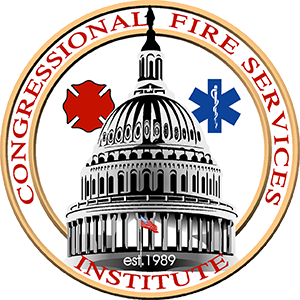Senator Tom Carper to Chair Congressional Fire Services Caucus
The Congressional Fire Services Institute is pleased to announce that Senator Tom Carper of Delaware will serve as the chair of the Congressional Fire Services Caucus for the 116th Congress. First elected to the Senate in 2001 after having previously served five terms in the House of Representatives and two terms as Governor, Senator Carper has been a tireless advocate for the nation’s fire and emergency services. Throughout his career in public service, he has advanced many initiatives to address the needs of the fire service.
“Senator Carper has been a strong advocate for firefighters in his home state of Delaware and across the entire nation. His leadership and commitment to public safety have made a difference on so many issues, enabling legislation to move through the Senate that has had a direct benefit on our nation’s fire and emergency services,” said Bill Webb, Executive Director of the Congressional Fire Services Institute. “CFSI looks forward to working with him on recruiting new members to the Fire Caucus and educating his colleagues on the needs of the fire service and the federal programs that benefit our nation’s first responders.”
Formed in 1987, the Congressional Fire Services Caucus was established to educate members of Congress about the fire and emergency services. The Fire Caucus was created to be a bipartisan group where Republicans and Democrats could work together to improve the readiness of local first responders and to jointly recognize their valor and dedication. Today, the Fire Caucus is among the largest and most respected caucuses in Congress. A current list of Fire Caucus members can be found on CFSI’s website.
